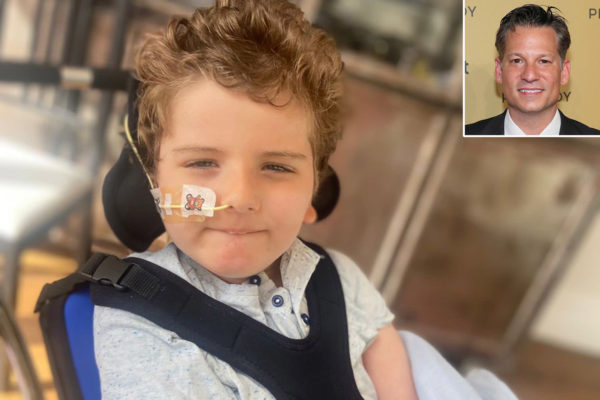The foreign correspondent’s son Henry was diagnosed with Rett Syndrome in 2017

Richard Engel is sharing heartbreaking news about his son’s health. The 6-year-old has Rett Syndrome, a rare genetic neurological disorder.
In a touching video that Richard shared on Twitter Monday, his son Theo, 2, affectionately kisses Henry on the forehead as Henry lays in bed.
“One more?” Theo appears to ask before giving his big brother another kiss in the sweet moment.
“For everyone following Henry’s story, unfortunately, he’s taken a turn for the worse,” the NBC News chief foreign correspondent, 48, captioned the touching clip. “His condition progressed and he’s developed dystonia: uncontrolled shaking/ stiffness.”
He added that Henry is “now home and getting love from brother Theo” after being hospitalized for six weeks.
https://twitter.com/RichardEngel/status/1531515626245738496?ref_src=twsrc%5Etfw%7Ctwcamp%5Etweetembed%7Ctwterm%5E1531515626245738496%7Ctwgr%5E%7Ctwcon%5Es1_c10&ref_url=https%3A%2F%2Fpeople.com%2Fparents%2Frichard-engel-says-son-henry-has-taken-a-turn-for-the-worst-rett-syndrome%2F
Sharing a photo of Henry flashing a grin, Richard wrote, “Thank you everyone for all the kind messages, from Henry, our Mr. Handsome.”
Henry was first diagnosed with Rett Syndrome, which leads to severe physical and cognitive impairments and has no cure, as of yet, in 2017.
Richard told PEOPLE in 2019 that Henry is “lacking a conductor gene” and that a medical team at Texas Children’s Hospital is “trying to build a treatment that could help immensely.”
https://twitter.com/RichardEngel/status/1531519375278280704?ref_src=twsrc%5Etfw%7Ctwcamp%5Etweetembed%7Ctwterm%5E1531519375278280704%7Ctwgr%5E%7Ctwcon%5Es1_c10&ref_url=https%3A%2F%2Fpeople.com%2Fparents%2Frichard-engel-says-son-henry-has-taken-a-turn-for-the-worst-rett-syndrome%2F
In 2020, Engel opened up about the realities of how the COVID-19 lockdown impacted Henry and their family. He said in a candid essay for Today that Henry was not doing very well” considering the circumstances.
“Henry has severe special needs, and COVID has been an absolute nightmare for him and millions of other children like him. I’d add more colorful adjectives, but you get the point,” wrote Engel, adding that Henry — who was 4 at the time — “doesn’t walk or talk. He can’t feed himself efficiently. He doesn’t sit up straight. Now that he’s getting bigger, he can barely move independently.”
The father of two admitted he and his wife Mary “were coping better before COVID,” revealing that “school was the only place where [Henry] could interact with other children,” which was a huge asset for him.
“The kids would come up and kiss him, tussle his hair and bring him toys,” Richard explained in part. “He didn’t always respond as they expected, but the excitement in his eyes told them he enjoyed and appreciated it. Special needs kids have the most expressive eyes.”






